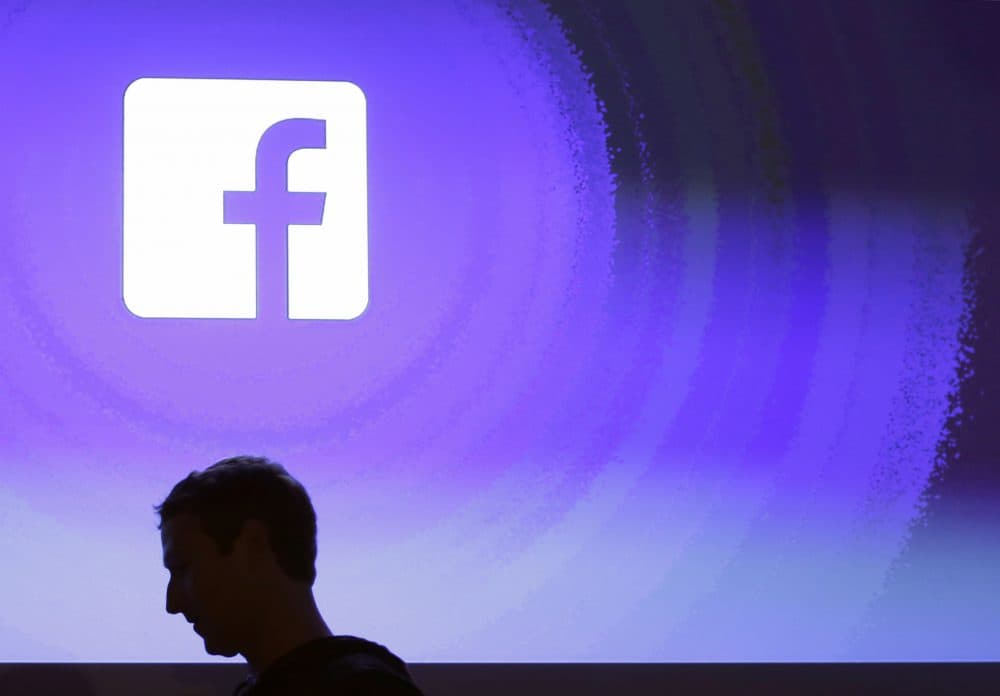Advertisement
Toll Of Twitter Trolls: Study Delves Into Social Media's Link To Depression

If you’ve spent even a flick of time on Facebook, you’re likely familiar with the gloom that can follow unpleasant social media interactions. You may also have felt the ephemeral rush of endorphins from pleasurable feedback on a post — a "love" or a "haha."
Sadly, it seems even the happiest of haha's won’t protect your mental well-being nearly as much as a sour social media encounter may detract from it, suggests new research in the journal Depression and Anxiety.
University of Pittsburgh researchers surveyed more than 1,000 American college students ages 18 to 30 about their social media usage, as well as the valence — psychology slang for "goodness" or "badness" — of these online experiences. The participants were then asked to fill out a questionnaire measuring their symptoms of depression.
The researchers found that negative experiences on social media were “strongly and directly related” to increased symptoms of depression, as expected. However, positive experiences were not significantly protective against depression.
For every 10 percent increase in reported negative experiences on social media, there was a 20 percent jump in a student's odds of reporting depressive symptoms.
Yet for every 10 percent increase in positive experiences, the odds of reporting depressive symptoms fell by just 4 percent, which was not statistically significant.
“We were surprised at the fact that there was a very weak relationship, or even no relationship, between having positive experiences and having less depression,” said lead author Dr. Brian Primack, director of Pitt’s Center for Research on Media, Technology, and Health. “We expected positive experiences to be more powerful.”
The study is the latest in a string of high-profile research on social media use and mental health from Primack and others. But unlike in previous studies, which found unsettling links between both depression and feelings of social isolation among young people using social media, the researchers were not focused on the amount of time participants spent perusing, for example, Pinterest. In this case, they were most interested in how much of their social media experience the participants deemed positive or negative.
Deciding what counted as a positive or negative experience was intentionally left up to participants, says Primack, because testing revealed there was little consensus as to what makes a stint on social media, well, stink. For some, arguing on political Reddit posts or blocking people on Snapchat may be more cathartic than traumatic.
Primack also cautioned against drawing cause-and-effect conclusions from the study.
“It may be that people who are already depressed tend to go online and somehow become more likely to engage in negative experiences,” he says. On the other hand, it’s entirely possible that people feel more depressed after negative experiences on social media.
“As with many things in social science,” he says, “the answer is probably a combination of the two.”
While this study did not examine differences among social media platforms, research from across the pond has provided some insight. A 2017 report from the U.K.’s Royal Society for Public Health ranked Instagram as the worst for mental health among young people, using criteria including impact on depression, body image and FOMO — fear of missing out. (Apparently, scrolling through an endless stream of people's most memorable moments does not promote mental well-being.)
Primack and colleagues plan to continue exploring social media factors potentially related to mental health, such as whether people are active posters or merely passive consumers (or as he put it, “lurkers”). He also hopes that by using good national data collected over time, the team can better pin down cause and effect.
While the exact relationship between depression and social media remains to be determined, some social media experts are more concerned about industry practices.
“My larger concern is the proprietary algorithms which are determined by a company or corporation," says Dr. K. “Vish” Viswanath, co-director of the Lee Kum Sheung Center for Health and Happiness at the Harvard T.H. Chan School of Public Health. “We have very little idea of how these companies are deciding behind the scenes what we should be exposed to."
Viswanath argues that this lack of transparency makes it exceedingly difficult for public health practitioners to counteract potentially problematic social media consumption.
What's To Be Done?
So if all this strikes a chord and you want to cut back on social media, here are some simple tips to help keep your online interactions sane and sanitary:
• Apart from a total digital detox, “limiting overall social media exposure” is a good start, Primack says.
• Also, consider “sticking to certain platforms” or behaviors “that are less likely to lead to negative exchanges or feelings,” he says. If the onslaught of Twitter bots riles you up like nothing else, it may be best to avoid microblogging.
• Finally, Primack suggests we should “try to develop resilience,” especially when confronting “what [are] really likely to be inevitable negative experiences.”
As for your child, tween or teen, helping them develop resilience early on is critical for “healthy and effective” online interactions, says Dr. Michael Rich, founding director of the Center on Media and Child Health at Boston Children’s Hospital.
“There is a strong tendency to retaliate rather than become resilient, to bully the bully,” says Rich.
He urges adults to “help guide the kids” in their digital lives. “I very much encourage parents to do social media with [their] kids from the beginning,” he says.
Justin Kaplan is a CommonHealth summer fellow.